When it comes to selecting a whole house generator, sizing is an important factor to consider.
Choosing the right size generator will ensure that your home has the necessary power during an outage.
Here are some key facts to keep in mind when sizing a whole house generator.
Click Here To Check Recommended Generators
How To Size A Whole House Generator?
Sizing a whole house generator involves calculating the electrical load requirements of your home and selecting a generator that can meet those needs.
Here are the steps to sizing a whole house generator:
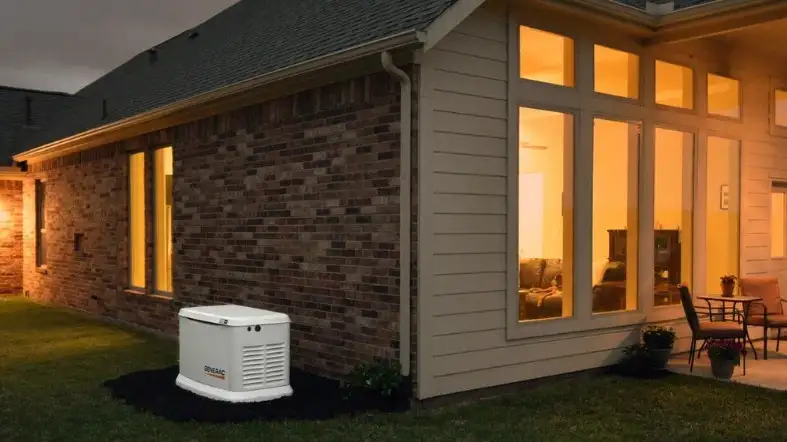
Determine your home’s electrical load
Make a list of all the electrical appliances and devices in your home that you will need to power during an outage.
This includes lights, HVAC systems, refrigerators, sump pumps, and other essential appliances.
Calculate the total power required
Check the wattage or amperage of each device on your list, and add up the total power required to operate them all at the same time.
Add additional load
Consider adding an additional load to your calculation to account for any future electrical needs, such as new appliances or an electric vehicle charger.
Choose a generator size
Once you have determined your home’s electrical load, choose a generator that can provide enough power to meet your needs.
Whole house generators typically range from 22 kW to 48 kW, with larger sizes available for commercial applications.
Consult a professional
It is always recommended to consult a licensed electrician or generator installer to ensure that your sizing calculations are accurate and that the generator is properly installed and connected to your home’s electrical system.
>>whole house generator size guide
What Size Generator Do I Need To Run My Whole House?
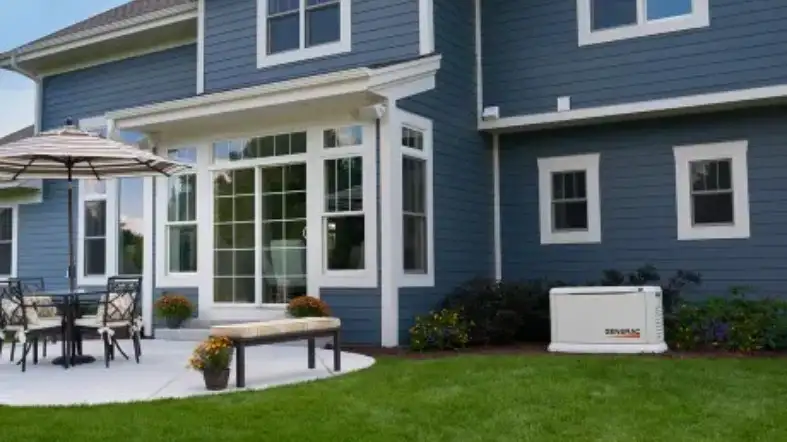
On average, a whole-house generator should be able to provide power for the
following:
Here is a table that provides a rough estimate of the generator size you may need based on the size of your home and the electrical load requirements:
| Home Size | Estimated Electrical Load | Generator Size |
|---|---|---|
| Up to 2,000 sq ft | 14-20 kW | 22-27 kW |
| 2,000-3,000 sq ft | 20-25 kW | 30-36 kW |
| 3,000-4,000 sq ft | 25-30 kW | 38-48 kW |
| 4,000+ sq ft | 30+ kW | 48+ kW |
What Are The Different Types Of Whole House Generators?
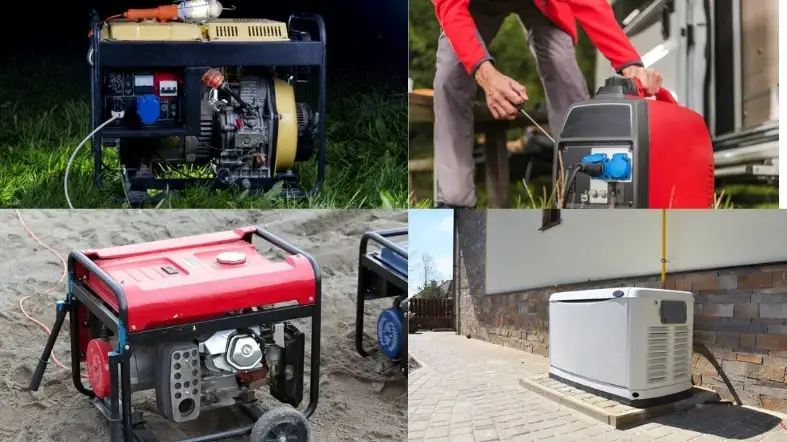
There are several types of whole house generators available on the market, each with its own unique features and benefits.
Here are some of the most common types of whole house generators:
Standby generators
These generators are permanently installed outside your home and are designed to automatically turn on when the power goes out.
They are typically fueled by natural gas or propane and can provide enough power to run your entire home.
>> Can I claim a whole house generator on taxes?
Portable generators
These generators are designed to be moved around and can be used to power specific appliances or devices during an outage.
They are usually fueled by gasoline or diesel and require manual startup.
Inverter generators
These generators are a type of portable generator that use advanced electronics to produce clean and stable power.
They are usually more fuel-efficient and quieter than traditional portable generators.
Solar generators
These generators use solar panels to generate electricity, which is then stored in a battery for use during an outage.
They are typically more environmentally friendly than other types of generators but may not be powerful enough to run your entire home.
>> What is the price to have a standby generator installed?
Hybrid generators
These generators combine multiple power sources, such as solar panels and a backup fuel source, to provide reliable power during an outage.
They are typically more expensive than other types of generators but offer a more flexible and reliable power solution.
>> How much coal does a coal generator require satisfactory?
How Much Does A Whole House Generator Cost?

The cost of a whole-house generator varies depending on the type, size, and features of the unit.
On average, standby generators cost between $2,000 and $10,000, while portable generators cost between $500 and $3,000.
Factors that affect the cost of a whole-house generator include:
Type
Standby generators are more expensive than portable units.
Size
Larger units cost more than smaller units.
Features
Units with additional features, such as automatic startup and whole-house surge protection, cost more than basic units.
Installation
The cost of installation can range from $500 to $2,000.
Maintenance
Annual maintenance costs can range from $100 to $300.
If you’re considering a whole-house generator, be sure to factor in the upfront cost of the unit as well as the ongoing costs of installation, maintenance, and fuel.
With this information, you can compare the total cost of ownership for different types and sizes of generators to find the best option for your needs.
>> How to form a 220 volt extension cord for generator?
How To Install A Whole-House Generator?
Installing a whole-house generator involves several steps to ensure it is properly connected to your home’s electrical system.
Here is an overview of the installation process:
Choose the installation location
The generator should be installed outside your home on a level surface that is at least five feet away from any windows or doors.
Install a concrete pad
A concrete pad should be installed on the ground to provide a stable base for the generator.
Connect the fuel source
If you are using natural gas or propane, a licensed plumber will need to connect the generator to your home’s gas line.
If you are using diesel, you will need to install an external fuel tank.
Install a transfer switch
A transfer switch is used to connect the generator to your home’s electrical system.
It is typically installed near the main electrical panel and automatically switches the power source from the utility company to the generator during an outage.
>> How to link up portable generator to house without transfer switch?
Install wiring
Electrical wiring will need to be installed between the transfer switch and the generator to connect them.
Connect to the electrical system
A licensed electrician will need to connect the transfer switch to your home’s electrical system.
Test the generator
Once the generator is installed, it should be tested to ensure it is properly connected and functioning correctly.
This should include testing the automatic transfer switch and verifying that the generator is producing power.
What Are The Benefits Of Whole-House Generators?
Whole-house generators have many benefits, including:
Increased Safety
Whole-house generators keep the lights on during power outages, which can prevent accidents.
Extended Life Of Appliances
Whole-house generators provide clean, stable power that can prolong the life of your appliances.
Convenience
Whole-house generators allow you to keep your home running normally during a power outage, so you don’t have to worry about losing food or being without heat or air conditioning.
>> will a 9000 watt generator power a house?
Increased Resale Value
whole-house generators are a valuable amenity that can increase the resale value of your home.
If you live in an area with frequent power outages, a whole-house generator can be a wise investment.
Be sure to consider the cost of the unit, installation, and ongoing maintenance when making your decision.
whole-house generators are a valuable amenity that can increase the resale value of your home.
What Are The Disadvantages Of Whole-House Generators?

Whole-house generators have some disadvantages, including:
High Initial Cost
Whole-house generators can be expensive to purchase and install.
Requires Regular Maintenance
Whole-house generators require regular maintenance to keep them running properly.
Can Be Noisy
Some whole-house generators can be quite loud, so be sure to choose a unit that’s designed for quiet operation.
Can Produce Harmful Emissions
Some whole-house generators run on fossil fuels, such as natural gas or propane, which can produce harmful emissions.
If you’re considering a whole-house generator, be sure to weigh the pros and cons carefully to decide if it’s the right choice for you.
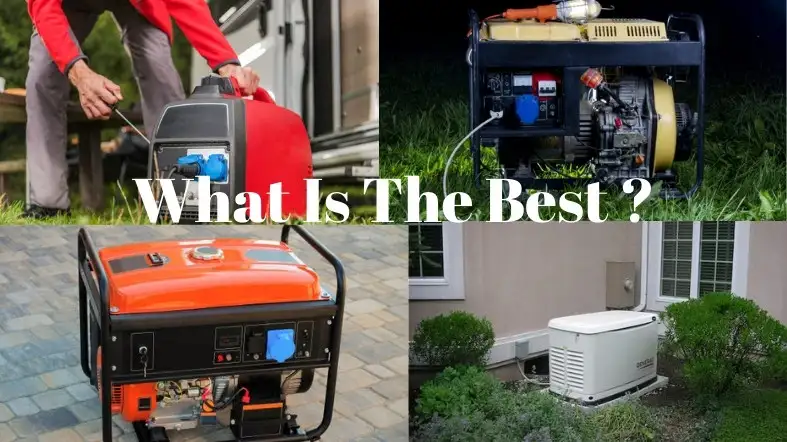
Is It Worth Getting A Whole House Generator?
Whole-house generators can be a wise investment for homeowners who live in areas with frequent power outages.
They provide increased safety, extended appliance life, and convenience during outages.
However, whole-house generators can be expensive to purchase and maintain, so be sure to weigh the costs and benefits carefully before making your decision.
Can I Install A Whole House Generator Myself?
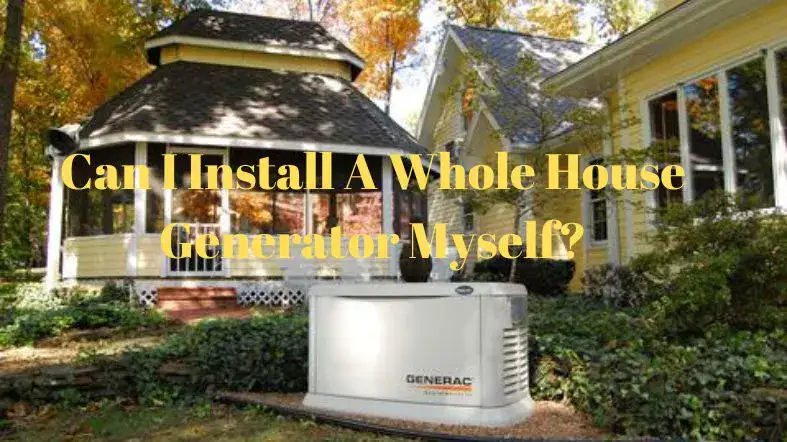
Installing a whole-house generator is a complex job that should be done by a qualified professional.
Attempting to install a generator yourself could void your warranty and put you at risk of injury or property damage.
What Are The Most Common Problems With Whole House Generators?
Some of the most common problems with whole-house generators include engine problems, fuel system issues, and electrical problems.
Engine problems are the most common type of problem, and they can be caused by a number of different factors.
The most common cause of engine problems is improper maintenance.
If you don’t properly maintain your generator, the engine can suffer from a variety of issues, including overheating, oil leaks, and fuel system problems.
Fuel system issues are another common problem with whole-house generators. The fuel system is responsible for delivering the gasoline or diesel fuel to the engine.
If there are any problems with the fuel system, it can cause the engine to run improperly or even stall.
Common fuel system problems include clogged fuel filters, leaks in the fuel lines, and bad fuel pumps.
Electrical problems are the third most common type of problem with whole-house generators.
These problems can be caused by a number of different factors, including loose electrical connections, faulty wiring, and bad breakers.
Electrical problems can also be caused by weather conditions, such as lightning strikes or power surges.
If you’re having any problems with your whole-house generator, the best thing to do is to consult a qualified technician.
They will be able to diagnose the problem and make the necessary repairs.
How Much Does It Cost To Service A Whole House Generator?

Service costs for whole-house generators vary depending on the type of service required.
Basic services, such as oil changes and filter replacements, typically cost between $100 and $200.
More extensive services, such as engine tune-ups, may cost between $500 and $1,000.
For major repairs, such as engine replacements, you can expect to pay between $5,000 and $10,000.
How Often Should A Whole House Generator Be Serviced?
Most whole-house generators come with a recommended service schedule.
For example, some manufacturers recommend that their generators be serviced every three months or 3,000 hours, whichever comes first.
It’s a good idea to consult your owner’s manual for specific service intervals.
Where Should A Whole House Generator Be Located?
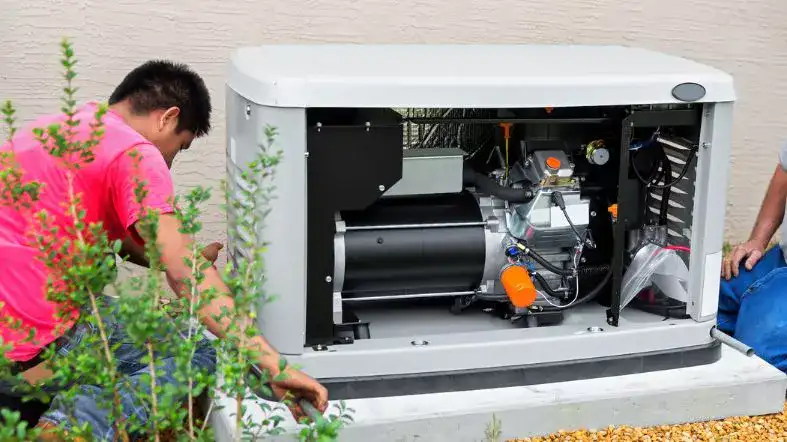
When choosing a location for your whole-house generator, there are a few things you should keep in mind.
First, the generator should be located in an area that is well-ventilated and away from any flammable materials.
Second, the generator should be located on a firm, level surface to prevent it from tipping over.
Finally, the generator should be located in an area where it will not be exposed to excessive moisture or dust.
How Much Does A Whole House Solar Generator Cost?
Solar generators typically cost between $2,000 and $10,000. The exact price will depend on the size of the unit and the features it offers.
What Are The Benefits Of A Whole House Solar Generator?
Solar generators offer a number of advantages over traditional gas-powered generators.
- They’re much quieter than gas generators, so you won’t have to worry about disturbing your neighbors when the power goes out.
- Solar generators don’t produce any emissions, so they’re better for the environment.
- Solar generators can be used in remote locations where there is no access to fuel.
- Solar generators are very low maintenance and can last for many years with proper care.
How Much Does It Cost To Run A Whole House Generator On Natural Gas?
The cost of running a whole-house generator on natural gas will vary depending on the size of the unit and the price of natural gas.
You can expect to pay between $0.50 and $1.00 per hour of operation.
How Much Does It Cost To Run A Whole House Generator On Propane?
The cost of running a whole-house generator on propane will vary depending on the size of the unit and the price of propane.
You can expect to pay between $1.00 and $2.00 per hour of operation.
FAQs
Can A Homeowner Install A Whole House Generator?
Homeowners can install whole house generators, but it is recommended that they consult with a professional to ensure the generator is properly sized and installed.
Improper installation can lead to safety hazards and damage to the home or generator.
How Long Can You Run A Generac Whole House Generator?
Generac whole-house generators are designed to run for 24 hours a day, 7 days a week.
You should still consult your owner’s manual for specific run time information for your model.
How Many KW Do I Need For A Whole House Generator?
The size of whole-house generator you need will depend on your specific power needs.
Be sure to consult with a qualified professional to help you choose the right unit for your home.
What Is The Lifespan Of A Whole House Generator?
The lifespan of a whole-house generator will depend on the make and model of the unit.
How Much Does It Cost To Install A Generac Whole House Generator?
The cost of installing a Generac whole-house generator can range from $2,500 to $4,500.
The average cost is $3,500. This does not include the cost of the generator itself.
The price will vary depending on the size of your home and the complexity of the installation.
A whole-house generator is a worthwhile investment for any home.
It will provide peace of mind in the event of a power outage and can even save you money on your electric bill.
Final Words
The size of the generator you will need to power your whole house depends on a number of factors, including the amount of power you anticipate needing and the number of appliances you want to be able to run simultaneously.
Be sure to consult with a qualified technician to ensure you choose the right generator for your needs.
